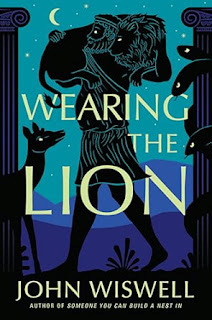
Her entry begins:
Shirley Rousseau Murphy’s Joe Gray books have been on my radar since the first one, Cat on the Edge, came out in 1996. I finally started reading them this spring and I’m up to book ten, Cat Cross Their Graves. The books are cozy with dashes of police procedure and fantasy. The three main characters are Joe Gray, Dulcie, and Kit, sentient house cats able to understand, speak, and read English. The mysteries are good and twisty and they aren’t told for the laughs one might expect from the set up. Except for their unusual talents, the cats act like cats. They’re also serious and successful amateur sleuths. There’s great situational humor, though. Not laughing at the cats, but at the issues they have using human technology, like computers and cell phones, and their very reasonable reactions to...[read on]About There'll Be Shell to Pay, from the publisher:
When she’s not selling seashells by the North Carolina seashore from her shell shop, Maureen Nash is a crime-solving sleuth with a ghost pirate for a supernatural sidekick...Visit Molly MacRae's website.
Maureen is still getting used to life on Ocracoke Island, learning how to play the “shell game” of her business—and ghost whispering with the spirit of Emrys Lloyd,the eighteenth-century Welsh pirate who haunts her shop, The Moon Shell. The spectral buccaneer has unburied a treasure hidden in the shop’s attic that turns out to be antique shell art stolen from Maureen’s late husband’s family years ago.
Victor “Shelly” Sullivan and his wife Lenrose visit the shop and specifically inquire about these rare items. Not only is it suspicious that this shell collector should arrive around the time Maureen found the art, but Emrys insists that Sullivan’s wife is an imposter because Lenrose is dead. A woman’s corpse the police have been unable to identify was discovered by the Fig Ladies, a group who formed an online fig appreciation society. They’re meeting on Ocracoke for the first time in person and count Lenrose among their number, so the woman can’t possibly be dead.
But Lenrose’s behavior doesn’t quite match the person the Fig Ladies interacted with online. Now, Maureen and Emrys—with assistance from the Fig Ladies—must prove the real Lenrose is dead and unmask her mysterious pretender before a desperate murderer strikes again . . .
My Book, The Movie: Plaid and Plagiarism.
The Page 69 Test: Plaid and Plagiarism.
The Page 69 Test: Scones and Scoundrels.
My Book, The Movie: Scones and Scoundrels.
The Page 69 Test: Crewel and Unusual.
The Page 69 Test: Heather and Homicide.
Q&A with Molly MacRae.
Writers Read: Molly MacRae (July 2024).
The Page 69 Test: Come Shell or High Water.
My Book, The Movie: Come Shell or High Water.
Writers Read: Molly MacRae.
--Marshal Zeringue



.jpg)



























.jpg)






